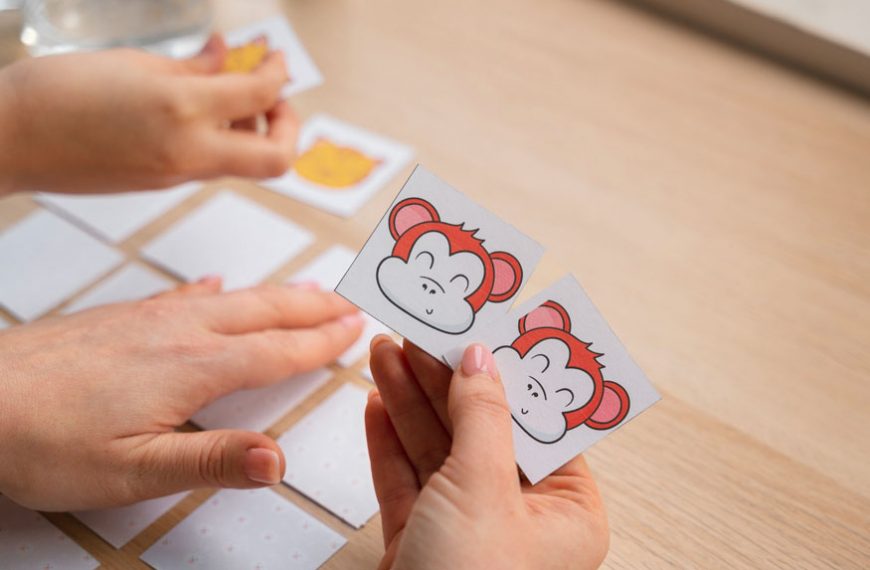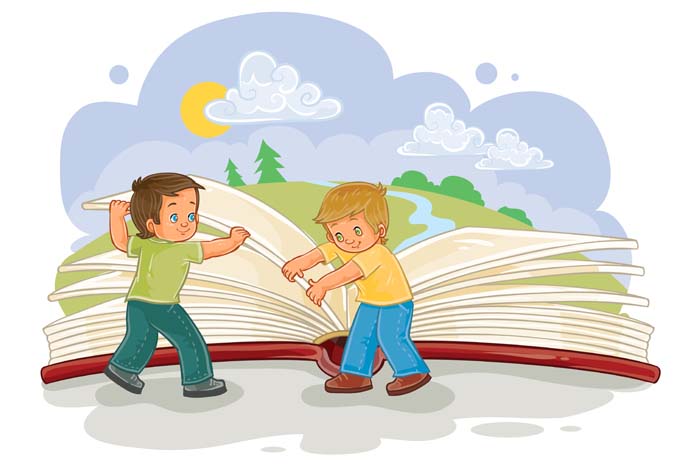In the captivating realm of a child’s growth and development, memory skills serve as the fundamental building blocks that shape their cognitive abilities. These skills are not only instrumental for excelling in academics but also hold the key to enriching various facets of their life journey. In this comprehensive guide, we will dive deeper into the art of nurturing and enhancing memory skills in children. Through a plethora of engaging games, activities, and creative strategies, we aim to equip your child with the invaluable skill of memory mastery.
Understanding Memory Skills
Before we embark on our expedition to fortify memory skills, let’s first anchor our understanding of what memory skills encompass. Memory skills encompass an array of cognitive abilities that empower a child to efficiently store, process, and retrieve information. These abilities serve as the bedrock for knowledge retention, problem-solving, and informed decision-making.
Types of Memory Skills
The world of memory skills is akin to a multifaceted gem, boasting various facets that we need to explore. Here are the three primary types of memory skills.
- Sensory Memory: This
- Short-Term Memory:
- Long-Term Memory:
form of memory is transient, lasting only a fleeting few second. It’s the extraordinary ability to retain information received through our senses, whether it’s what we see, hear, or touch. The first step into the domain of memory is sensory memory, which captures the essence of our surroundings.
Also known as working memory, this type allows us to hold and manipulate information for a brief period, usually around 20-30 seconds. It’s an essential skill for tasks such as mental arithmetic and following multi-step instructions, providing the mental canvas for immediate problem-solving.
The grand repository of memory, this type involves the storage of information for an extended period, potentially a lifetime. Within this vast vault, we safeguard our knowledge, experiences, and skills for future use, shaping our personal history.
How to Practice Memory Skills
With a solid understanding of memory skills in place, let’s explore the art of honing these skills in children:
- Play Memory Games :
- Use Mnemonics:
- Practice Visualization:
- Chunk Information:
- Establish Routine:
- Encourage Reading:
Memory-enhancing games are the delightful playgrounds where cognitive growth blossoms. Classic card games like “Memory” (also known as Concentration) involve matching pairs of cards, elevating visual memory to new heights. Other enchanting games like “Simon Says” can transmute auditory memory into a finely tuned instrument of recall.
Mnemonics, those magical memory aids, sprinkle a touch of enchantment onto the learning process. For instance, mastering the order of planets becomes a breeze with the aid of the memorable phrase “My Very Educated Mother Just Served Us Noodles,” where each word’s first letter corresponds to a planet.
Encourage your child to craft vivid mental images of what they wish to remember. For instance, if they’re diving into the world of historical figures, have them conjure up imaginative scenarios or surroundings for these historical giants, painting memory with the colors of creativity.
Complex information can be daunting for young minds. Break it down into bite-sized, digestible chunks. Memorizing a phone number, for instance, becomes less intimidating when divided into its components: area code, prefix, and line number, simplifying the memory task.
Memory thrives in the lap of routine and structure. A well-structured daily schedule serves as a reliable memory anchor for important activities and assignments, fostering the development of time-oriented memory skills.
Reading is not just a leisure activity; it’s an exercise of memory. It demands the recollection of characters, plot intricacies, and the sequence of events, turning reading into an exciting memory-building adventure.
Memory Skills Examples in Action
Let’s illuminate the path with real-life memory skills examples in action:
- Mastering Multiplication Tables:
- Reciting Poems:
- Expanding Vocabulary:
- Musical Mastery:
- Navigating the Familiar:
The journey of learning multiplication tables involves the mastery of numbers and patterns, a prime example of memory skills in action.
The art of memorizing and reciting poems sharpens verbal memory. It’s a captivating exercise that requires the retention of words, their sequence, and pronunciation, showcasing the power of memory in artistry.
Expanding one’s vocabulary necessitates the memorization of new words and their meanings, tapping into both short-term and long-term memory reservoirs, enriching communication skills.
Musicians rely on memory to serenade us. Memorizing sheet music or songs engages both visual and auditory memory, transforming a melody into an unforgettable symphony, illustrating memory’s harmonious role in the arts.
Memory skills manifest in the everyday navigation of familiar places, as children recall landmarks and directions, ensuring they never lose their way, demonstrating the real-world application of memory abilities.
Memory Skills Activities
To turn theory into practical application, here are some captivating memory skills activities to fortify your child’s memory skills:
- Memory Card Games:
- Story Retelling:
- Puzzle Solving:
- Scavenger Hunts:
- Drawing from Memory:
- Reciting List:
As mentioned earlier, the classic memory card game invites players to match pairs of cards, fostering visual memory prowess and offering hours of fun and learning.
After sharing a story together, challenge your child to retell it in their own words. This exercise enhances their ability to recall and recount information coherently, cultivating the narrative aspect of memory.
Jigsaw puzzles, crossword puzzles, and Sudoku require children to remember patterns and clues, thereby nurturing both short-term and long-term memory, fostering strategic thinking and patience.
Embark on treasure hunts filled with excitement and discovery. Armed with a list of items to find or clues to decipher, your child’s short-term memory and problem-solving skills will flourish, promoting an adventurous spirit.
Encourage your child to draw something they encountered earlier in the day, such as a majestic tree, a beloved pet, or a cherished toy. This artistic endeavor stimulates visual memory recall, enhancing their artistic skills and creativity.
Challenge your child to memorize and recite lists of items, from grocery essentials to an array of animals. Gradually increase the length of the list, offering a thrilling memory adventure and boosting their organizational skills.
In the magnificent tapestry of a child’s growth and development, memory skills stand as the virtuoso performers, orchestrating the melodies of learning and success. These skills are not just tools for academic triumph; they are the keys to unlocking a world filled with boundless potential and personal growth. As a parent or caregiver, you wield the incredible power to cultivate an environment where memory skills flourish. Every child is a unique masterpiece, and the activities and strategies you employ should be tailored to their individual interests and capabilities.
EuroKids, a renowned name in early childhood education, is deeply committed to the development of children’s memory skills. They recognize the vital role memory skills play in a child’s overall growth and academic success. EuroKids has crafted a comprehensive learning environment where memory-boosting games, activities, and innovative techniques are seamlessly integrated into the curriculum. This approach ensures that children not only thrive academically but also acquire crucial life skills. EuroKids’ unwavering dedication to enhancing memory skills reflects their mission to provide a well-rounded education that equips children with the tools they need for success both in their educational journey and in their future endeavors.














